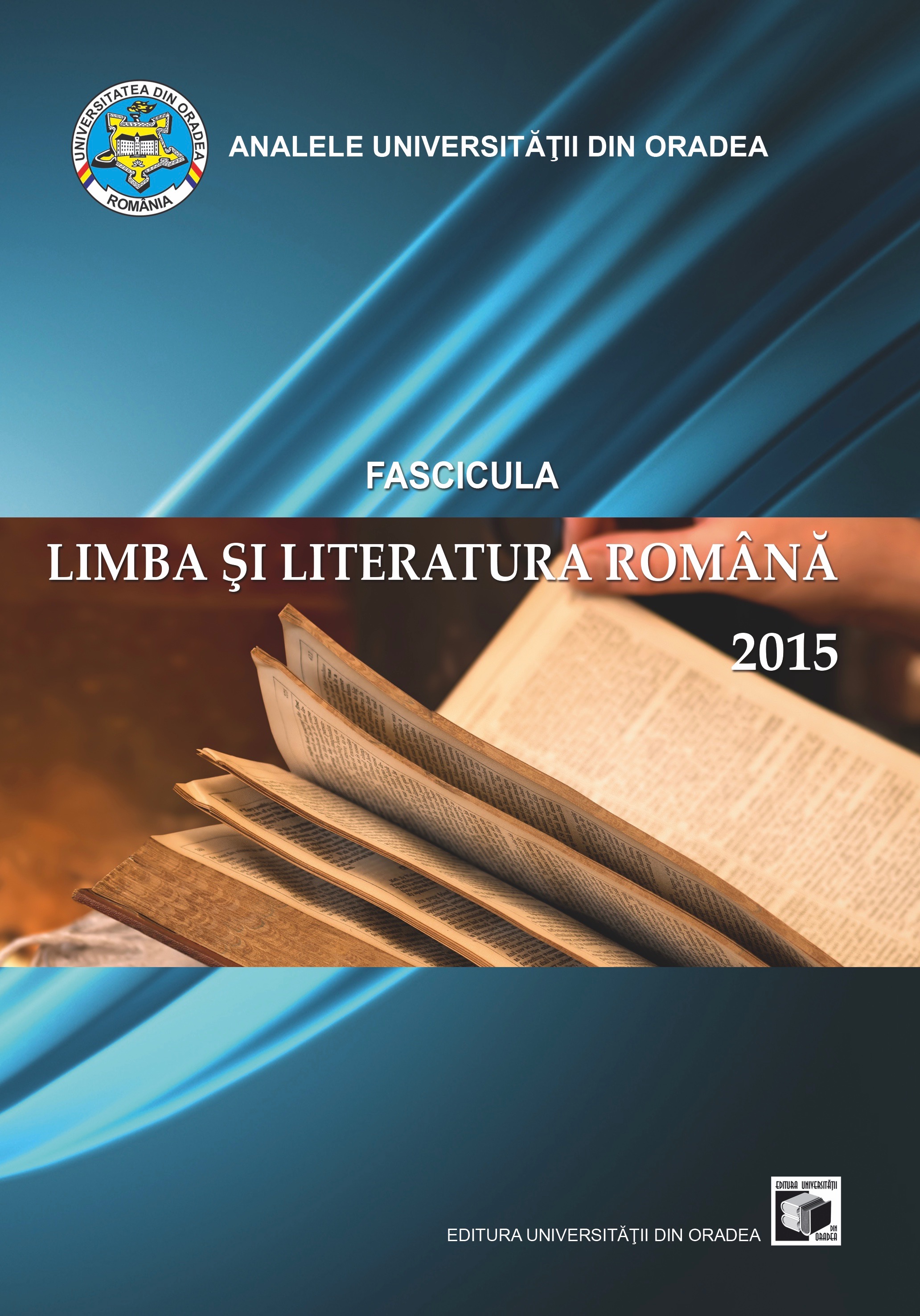DUMITRU RADU POPESCU AND THE THEATRICAL NOVEL
DUMITRU RADU POPESCU AND THE THEATRICAL NOVEL
Author(s): Ion SimuţSubject(s): Studies of Literature, Romanian Literature
Published by: Editura Universitatii din Oradea
Keywords: the contemporary Romanian novel; Dumitru Radu Popescu; the Baroque epic; the theatrical novel; the detective investigation; playfulness; documentary narrative;
Summary/Abstract: The work of Dumitru Radu Popescu, one of the most important contemporary Romanian writers of the generation who became representative after 1960, is not stylistically and thematically fractured as a result of the political changes occurred in Romania after 1989. His uniqueness and originality are still rooted in the same areas of unusualness and baroque, including elements of theatricality. His novels continue to be conceived as investigations employed in any crime fiction. The writer’s masterpieces remain the two novels, F (1969) and Vanatoarea regala [The Royal Hunt] (1973) , but the themes and the style of the author are the same in his subsequent books of the epic cycle, Viața și opera lui Tiron B. [The Life and Work of Tiron B.] (1980-1982), where the juxtaposition of fantasy and documents enliven the narrative. His most recent novels, Falca lui Cain [Cain’s Jaw] (2001) and Calugarul Filippo Lippi si călugărița Lucrezia Buti [Filippo Lippi, the Monk, and Lucrezia Buti, the Nun] (also published in 2001), are constructed on a theatrical principle, organizing the narrative into dramatic acts and the characters’ speeches, into retorts and dialogues. The writer declares himself to be a partisan of the theatrical novel yet he builds his latest novels by combining four registers, corresponding to the four literary genres, namely, the epic, lyrical, dramatic, and the journalistic ones.
Journal: Analele Universităţii din Oradea Fascicula Limba si Literatura Română (ALLRO)
- Issue Year: 22/2015
- Issue No: 1
- Page Range: 50-60
- Page Count: 11
- Language: English
- Content File-PDF

